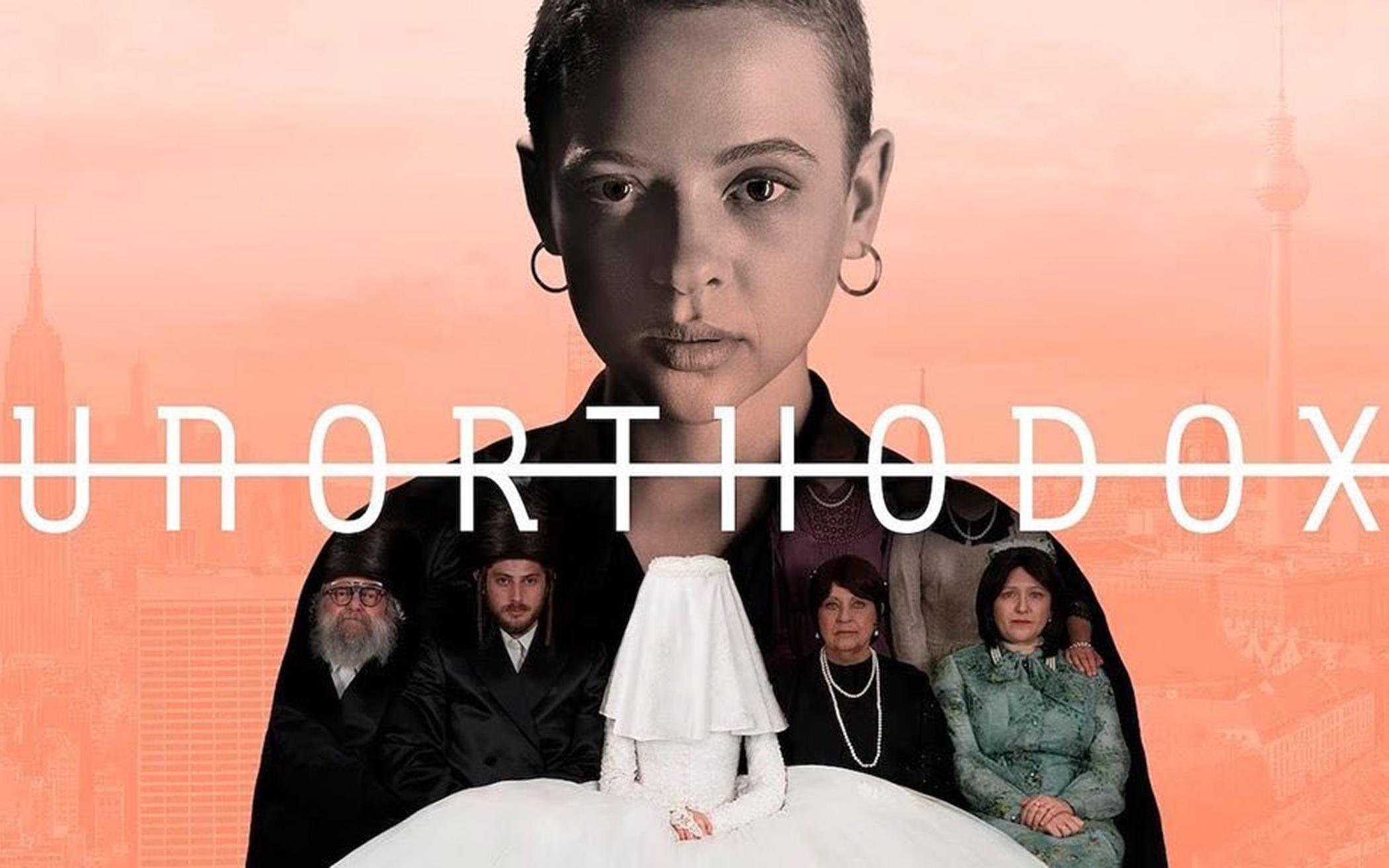After what seems like months of social distancing, I’m feeling particularly fenced in. My wife and I have turned to Netflix to help us experience new places and different communities. Our favorite series so far has been Unorthodox, a four-part miniseries about a young Jewish woman who attempts to flee an ultra-Orthodox Hasidic community in the Williamsburg neighborhood of Brooklyn.
The first episode starts with the image of a wire hanging loosely from a post. We then see a young woman, Esther or Esty Shapiro, who considers the Brooklyn skyline from an apartment window. As she attempts to leave the building, a group of mothers tell Esty in Yiddish that she can’t go out as the eruv, the wire on the post, is broken. But if she leaves her bag, she can go out. Esty turns around and ditches her bag, leaving with only a family photograph and cash hidden under her skirt’s waistband. Soon, she is on a plane headed to Berlin.
These initial scenes establish the marvelous mix of mystery, adventure, and cultural-religious anthropology that distinguishes Unorthodox from other series. Why is Esty running away? What will she do in Germany with only the clothes on her back? How can a simple wire bind a community? Will Esty remain free?
Sure enough, when Esty’s husband Yakov or Yanky Shapiro discovers her absence, his family and the community’s rabbi come up with a plan. Yanky and his cousin Moishe, who once lived outside the community, will go to Germany to bring her back. The plot then alternates between flashbacks explaining why Esty married Yanky and scenes describing Esty’s struggle to survive in Berlin. Yanky and Moishe, with sidelock curls hidden under baseball caps, follow hot on her heels.
Shira Haas (Shtisel) is fabulous as Esty. Her facial expressions switch from pain to wonder in an instant. Amit Rahav portrays Yanky as a kind yet dopey husband, clueless to his wife’s true desires. Jeff Wilbush gives Moishe an air of thuggish menace clothed in religiosity.
An excellent documentary, Making Unorthodox, follows the series and explains the considerable effort the production team made to depict the Hassidic community accurately. The series has indeed a documentary flavor, displaying details such as the eruv wire (that expands the private domain into the public on sabbath days) to the role of a matchmaker and the elaborate steps in a traditional wedding ceremony.
Inspired by Deborah Feldman’s memoir Unorthodox: The Scandalous Rejection of My Hassidic Roots, the series shows the conflict between an individual woman’s desires and the demands for conformity made by a closed religious community. Esty feels she is different from other women in her community—she tries to fit in, but she isn’t happy or fulfilled.
Outside of her community, however, who and what will guide Esty now she is “unorthodox”? In Berlin, Esty uses Google for the first time to ask, “Does God exist?” She is shocked to see Google spit back multiple answers. Esty quickly joins up with a group of extremely good-looking music students, straight and gay, of various races and religious backgrounds. This utopian community embraces her immediately and challenges her to live and love freely. This heavy-handed contrast with her Brooklyn Hassidic community is saved by the series’ visual quality. Look for a stunning scene when the students invite Esty to a beach. She walks almost fully clothed into the water, as if taking a secular ritual bath or baptism.
Beautifully filmed and acted, with dialogue in Yiddish, German, and English, Unorthodox will certainly take you out of your current confinement at home. In terms of its rating for mature audiences, the series is indeed fairly explicit about sex and sexuality, especially when Esty and Yanky, in painful ignorance, struggle to conceive, and also as Esty travels wide-eyed through contemporary Berlin. All in all, Unorthodox gives much food for thought about rules-bound religious communities and the challenge to follow a spiritual compass tied to God’s grace.
(Netflix, Rated TV-MA for nudity, language, and smoking)
About the Author
Otto Selles teaches French at Calvin College, Grand Rapids, Mich., and attends Neland Avenue Christian Reformed Church in Grand Rapids.

